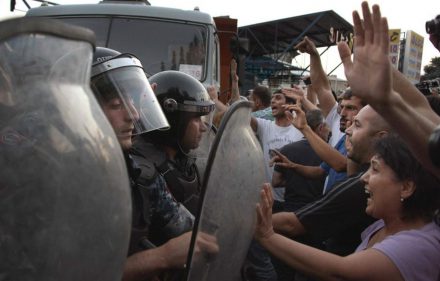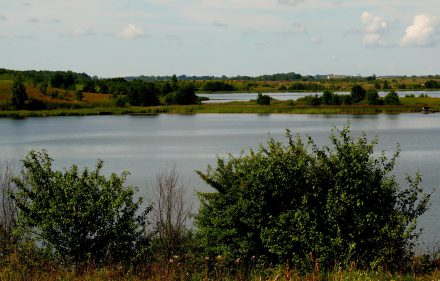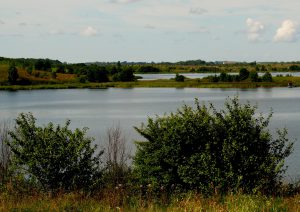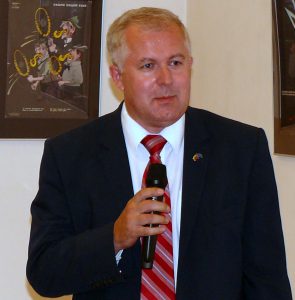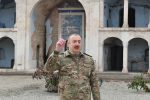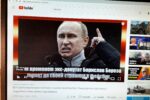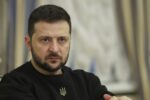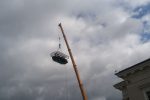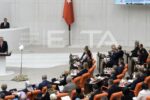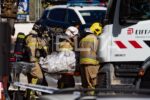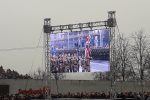Svante Cornell, Research Director of the Central Asia-Caucasus Institute and co-founder of the Stockholm-based Institute for Security and Development Policy, published an article in “The American Interest” called “The Raucous Caucasus” (May 10, 2017) where he reminded that Armenia had long tried to balance its reliance on Russia for security (it had accepted a Russian security umbrella to safeguard its conquest of Nagorno-Karabakh) with its hopes of growing closer to the West.
As a result, there was a deep economic downturn and Armenia accumulated a huge debt to Russia, which Moscow was more than happy to “forgive” in exchange for controlling stakes in the strategic assets of Armenia’s economy. Yerevan sought to develop what positive relations it could with the United States and especially the European Union (in 2010, it began to negotiate an Association Agreement, including a Deep and Comprehensive Free Trade Agreement (DCFTA)), but when Moscow soured on the EU, Yerevan’s policy became untenable. And in September 2013, President Serzh Sargsyan announced that Armenia would jettison the EU agreement for membership in the Russian-dominated Eurasian Economic Union (EEU).
His decision Armenian president spoke in Moscow, following a meeting with Putin; he had consulted neither his government nor his parliament. Similarly, Putin had not deigned to consult with the leaders of Belarus and Kazakhstan, the other members of the EEU.
Such circumstances obviously had an impact on Armenia’s domestic policies related to democracy and human rights – Moscow intends to make Armenia its vassal by “delegating” its own style of internal organization, where all decisions are made by one person, what can be seen in a regime of the new Russia. Moscow’s control of Armenia extended, although, according to S. Cornell, that submission didn’t have the expected benefits, however: when major fighting broke out in April 2016 between Armenia and Azerbaijan in Nagorno-Karabakh, rather than coming to Yerevan’s defense, Moscow assumed a rather neutral stance, hoping to achieve a total domination over all Caucasus region.
Avetik Ishkhanyan, President of the Helsinki Committee of Armenia, in his programme “Armenian Security Improvement Policy” and in report “Situation of Human Rights in Armenia: Systemic Problems in the Light of Old and New Constitutions” (http://www.lragir.am/index/rus/0/right/view/46591) starts with a statement that usually citizen rights are threatened by executive authority, especially its power structures, and justice, by definition, is reconstructed by judicial system. In case of Armenia, all governmental structures are ruled by and obey commands of one single person – the president can punish one of his own, more specifically, he can issue a command to punish a subordinate from his own circle, and at the same time, people who are part of this circle, especially in power structures, are the main foundation of Armenian government.
Armenia has no honest trials and one of the indirect proofs supporting this claim is that a number of acquittals is as low as 2 percent, also almost all requests from investigators to arrest suspects are granted. The report of 2002-2013 by the European Committee for the Prevention of Torture addresses the problem of regular tortures in some penitentiary institutions.
Thus Armenian people are protected not by law but by their official status and financial situation. These two powers usually “overlap” as most of the deputies and government ministers are businessmen as well. Law officers and their family members often get into scandals related to criminal activities, but, as a rule of thumb, they often come out unpunished. Authors of the report call this an impunity or selective justice. In Armenia, the authority means not only governance but also wealth and profitable business which needs to be preserved by all means necessary, sometimes even illegally.
Such fusion of business and authority is related to constant electoral fraud and absence of separation of power principle, and it confirms that human rights violations are already systematic. In everyday life people are indifferent to such state if it does not apply to them personally or violations do not grow to such proportions as in March 2008, when 10 people were killed and 250 injured during the clash between police and protesters. The guilty was not found and no one was punished. According to authors of the report, the worst situation is of socially unprotected part of society: they do not get basic medical aid; labour law is no use for them (they work like slaves, without any contracts, days-off or leave). Absence of separation of power principle allows businessmen=officials, who pursue maximum profit, get out of control; there are no independent labour unions; and the most influential political parties almost never talk about social justice.
Instead, in 2013, President of Armenia Serzh Sargsyan organized a referendum (December 6, 2015) which proposed some constitutional amendments that would lead country towards parliamentary system. According to authors of “Situation of Human Rights in Armenia: Systemic Problems in the Light of Old and New Constitutions”, the main reason of these amendments were to help ruling party (related to President) to stay in power – Article 50 of the old constitution restricted the same person to be reelected as Armenian President two times in a row. The Parliament, however, can be ruled by the same political party (it appoints the Prime Minister) for the unlimited duration.
Article 89 of the new Constitution requires a mandatory formation of stable (about 60 percent) parliamentary majority after elections. Having in mind what was said, it can be presumed, that ruling Republican Party would pursue this “stable majority” at all costs. It was confirmed during Referendum on constitutional amendments, when many blatant violations were witnessed: voter bribery, voter impersonation, forgery of the electoral list, offering voters a “ride” to constituency, putting pressure on and threatening election observers and journalists.
On April 2, 2017, for the first time elections were held according to party list system (almost 61 percent of Armenian nationals attended the elections). A group of civil activists from “Citizen Observer” informed about more than 100 cases of malfunctioning fingerprint registration devices, and more than 150 cases of procedure irregularities (for example, ballots were submitted to ballot boxes by members of Electoral commission). Sisak Gabrielian, a correspondent for the radio station “Svoboda”, was assaulted in Yerevan after he witnessed “good” voters receiving money in headquarters of Akop Beglaryan, candidate of Republican Party). The Pro-President Republican Party won the elections with 46 percent of votes. A new president will be appointed by this political party which now dominates the Parliament.
Authors of this report pessimistically summarizes, that by surrendering its ambitions for the EU membership Armenia distances itself even further from civilized human rights standards. After regaining independence in 1990, Armenia declared loyalty for democracy – with joining the United Nations (UN) it ratified The European Convention on Human Rights. In 2001 Armenia became a full member of the council of Europe; it had satisfied its obligation to establish an independent ombudsman to investigate human rights violations; verdicts of the European Court of Human Rights became valid. Further movement towards the EU membership could have had a dissuasive effect as it could be seen from the historical example of the Baltic States.
Unfortunately, the desire for power at any price, together with a very specific geopolitical situation of the country, left the need of citizens’ rights only on a level of declarations. The decision to join Russian-ruled EES in 2013 distanced Armenia from these standards even further.
Worsening human rights situation was also noted by members of Policy Forum Armenia which was hosted in Washington, on October 20, 2016. Presentations were made by representatives of Armenian Helsinki Committee, “Transparency International”, “Human Rights Watch”, National Endowment for Democracy fund, American Lawyers Association and George Washington University Law School. Once again as the main causes of this situation were indicated Armenian constitutional system that allows accumulation of power in the hands of one man, already consistent corruption, amalgamation of business and political elite, absence of independent judicial system, and finally – strong dependence on authoritarian Russia.
David Grigoryan, one of the cofounders of “Policy Forum Armenia”, noted, that Armenia is one of the leading countries worldwide according to a relative number of policemen (per capita). In such structure, where signs of police state can be seen, the system of government shows more and more confidence and starts displaying inadequate power against its citizens, what exactly happened during protests in July, 2016.
Jane Buchanan, Associate Director of the Europe and Central Asia Division at Human Rights Watch, noticed increase of the so-called Robin Hood effect, when citizens, disappointed with current economic and social conditions, start sympathizing with those who break the law.
2017.07.20; 06:30

